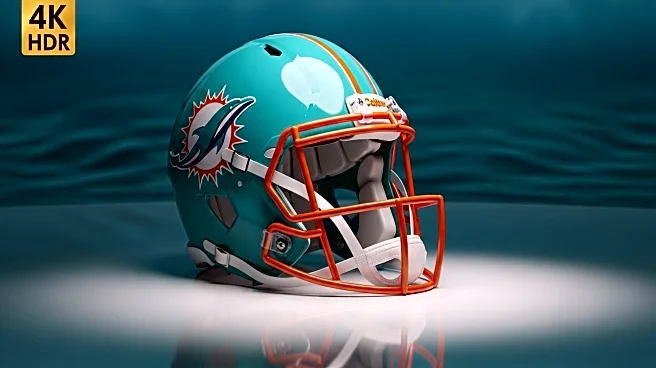What's Happening?
Tyreek Hill, the Miami Dolphins' star wide receiver, suffered a severe knee injury during a game against the New York Jets, ending his season. Hill tore multiple ligaments, including his ACL, and required emergency surgery. This injury has created a significant gap in the Dolphins' offense, as Hill was a key player for quarterback Tua Tagovailoa. The Dolphins are now faced with a decision regarding Hill's future with the team, as his contract includes a substantial non-guaranteed salary for the 2026 season. League sources suggest that the Dolphins may release Hill before the start of the 2026 league year to avoid guaranteeing $16 million when Hill is unlikely to pass a physical.
Why It's Important?
The injury to Tyreek Hill is a major setback for the Miami Dolphins, impacting their offensive strategy and potentially altering their roster decisions. Hill's absence could affect the team's performance and playoff prospects, as he was one of their most explosive players. The financial implications of Hill's contract are significant, as releasing him could free up salary cap space for the Dolphins to pursue other players. This decision could also influence the team's long-term planning and roster construction, as they may need to find a replacement for Hill's role in the offense.
What's Next?
The Dolphins are expected to evaluate Hill's recovery and make a decision on his contract before the 2026 league year begins. If Hill is released, the team will need to explore options to fill the void left by his departure, potentially through trades or free agency. The Dolphins' management, including General Manager Chris Grier, may have strategic plans to address the team's needs in the wake of Hill's injury. The decision will likely be influenced by Hill's recovery progress and the team's performance in the remainder of the season.
Beyond the Headlines
Hill's injury and potential release highlight the challenges teams face in managing player contracts and injuries. The situation underscores the importance of strategic planning and financial management in professional sports, as teams must balance player performance with contractual obligations. The Dolphins' decision could set a precedent for how teams handle similar situations in the future, particularly regarding high-profile players with significant contracts.











